New UN websites & publications
UN in General
Secretary-General’s Priorities for 2023
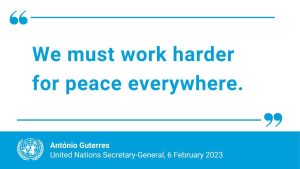
UN News Story
English: https://news.un.org/en/story/2023/02/1133192
French: https://news.un.org/fr/story/2023/02/1132042
Spanish: https://news.un.org/es/story/2023/02/1518352
Portuguese: https://news.un.org/pt/story/2023/02/1809322
Press Release
English: https://press.un.org/en/2023/sgsm21680.doc.htm
French: https://press.un.org/fr/2023/sgsm21680.doc.htm
UN Geneva – Digital Recordings Portal
https://conf.unog.ch/digitalrecordings/
The UN in Geneva organizes thousands of meetings every year. In 2022, more than 2,800 of these meetings were recorded, the majority of which were recorded in multiple languages. This is a tremendous amount of data that needs to be recorded, stored, and preserved so that important decisions can be referenced in the future. The Digital Recordings Portal has been the go-to location for all meetings recorded at the Palais des Nations and the Palais Wilson in Geneva since 2013. While the tool is widely used, it was not usable by all. It excluded non-English speakers, as well as many persons with disabilities. The Division of Conference Management (DCM) at UN Geneva has relaunched the portal with several new functions. The interface has been updated to be fully accessible for users of assistive technologies such as screen readers. It can be controlled via keyboard navigation, enabling more persons with disabilities to use the portal. Building on a partnership between WIPO and the project FAST (Fully Automated Speech to Text), meeting transcripts are automated in English, French, and Spanish to accompany the audio recordings. This is an important update for accessibility and searchability, as well as for processing meeting outcomes. The new platform can be used in both English and French.
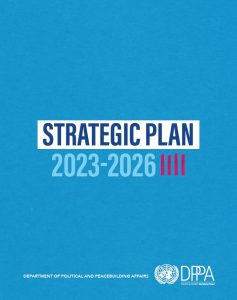
https://dppa.un.org/en/strategic-plan-2023-2026
DPPA’s new Strategic Plan sets out a vision and priorities until 2026. It looks at how the Department will contribute to lessening tensions and changing the trajectory of conflicts over the coming three years.
see also: DPPA Politically Speaking, 30 January: https://bit.ly/3DME6Kp
Highlights of Security Council Practice 2022
https://www.un.org/securitycouncil/content/highlights-2022
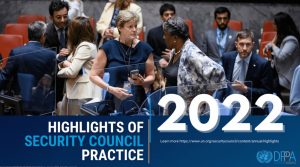
Coronavirus Disease (COVID-19)
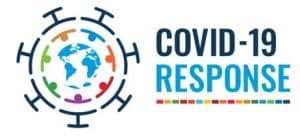
How Effective were Job-Retention Schemes during the COVID-19 Pandemic? A Microsimulation Approach for European Countries (IMF Working Paper No. 2023/003)
https://www.imf.org/-/media/Files/Publications/WP/2023/English/wpiea2023003-print-pdf.ashx
The COVID-19 pandemic had posed a dramatic impact on labor markets across Europe. Forceful fiscal responses have prevented an otherwise sharper contraction. Many countries introduced or expanded job-retention schemes to preserve jobs and support households. This paper uses a microsimulation approach (EUROMOD) and household data to assess the effectiveness of those schemes in stabilizing household income during the pandemic across European countries. Empirical evidence shows that job-retention schemes were effective in stabilizing income and, along with other measures, absorbed nearly 80 percent of market income shocks—almost doubling the extent of the automatic stabilization of the pre-pandemic tax and benefit systems. The large effects are related to the widespread use and scaling up of those schemes and a deep but short-lived disruption to labor markets during the pandemic. Along with other fiscal support measures, job-retention schemes helped mitigate the rise in the unemployment rate, by about 3 percentage points, and income inequality during the pandemic. Our results show that job-retention schemes were largely targeted, in which households more vulnerable to income losses, such as lower-income families, youth, and low-skilled workers, are able to stabilize their income.
Implementation of the principles of purpose limitation, deletion of data and demonstrated or proactive accountability in the processing of personal data collected by public entities in the context of the COVID-19 pandemic (A/HRC/52/37, 27 December 2022)
English, French & Spanish: https://undocs.org/A/HRC/52/37
“Summary: The present report has been prepared pursuant to Human Rights Council resolution 46/16. In the context of the coronavirus disease (COVID-19) pandemic, data were collected from millions of people in all countries of the world for one sole purpose: to combat the pandemic. Although the principles of purpose and time limitation (which require personal data to be deleted from databases once the purpose has been achieved) are incorporated in national and international regulations on personal data processing, the following questions have nonetheless arisen: What will happen to the personal data collected from these millions of people for the purpose of combating the COVID-19 pandemic? Will they be deleted? Will they be anonymized? Will they be used for purposes other than those for which they were collected? The Special Rapporteur on the right to privacy, Ana Brian Nougrères, envisages that the review forming the basis of this report might serve as a call on States to ensure timely application of the principles of purpose limitation, deletion of data and demonstrated accountability (also referred to as proactive accountability) in respect of the personal data that were collected from millions of persons in the context of the pandemic.”
Infection prevention and control in the context of coronavirus disease (COVID-19): a living guideline, 13 January 2023 (WHO)
https://www.who.int/publications/i/item/WHO-2019-nCoV-ipc-guideline-2023.1
The World Health Organization (WHO) has updated its guidelines on mask wearing in community settings, COVID-19 treatments, and clinical management. This is part of a continuous process of reviewing such materials, working with guideline development groups composed of independent, international experts who consider the latest available evidence and the changing epidemiology.
For additional updated guidelines: https://www.who.int/publications/i
Risk Assessment prior to Introduction of Covid-19 Air Travel Requirements (ICAO)
https://www.icao.int/safety/CAPSCA/PublishingImages/Pages/Electronic-Bulletins-and-State-Letters/eb006e.pdf
The International Civil Aviation Organization (ICAO) has issued reinforced recommendations on 16 January 2023 for countries on risk management and the introduction of COVID-19 related national air travel requirements. Issued in a new ICAO bulletin from its Collaborative Arrangement for the Prevention and Management of Public Health Events in Civil Aviation, or ‘CAPSCA’ programme, the guidance is designed to help countries maintain air connectivity while taking prudent and evidence-based measures to mitigate ongoing risks of SARS-CoV-2 transmission.
Economic Growth and Sustainable Development
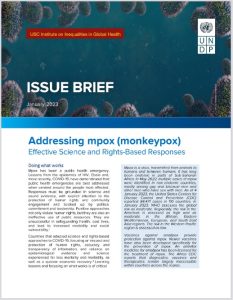
https://www.undp.org/publications/addressing-mpox-monkeypox-effective-science-and-rights-based-responses
This Issue Brief between UNDP and the University of Southern California Institute on Inequalities in Global Health presents key factors to address in mpox responses, as well as lessons for future pandemic responses. It highlights key lessons from the first few months of the outbreak that build on lessons from the HIV and COVID-19 response. The brief provides clear recommendations to address mpox and future outbreaks and pandemics, including the importance of human rights-based and science-driven responses, community engagement, health systems strengthening, and global solidarity.
Bracing for Superbugs: Strengthening environmental action in the One Health response to antimicrobial resistance (UNEP)
https://www.unep.org/resources/superbugs/environmental-action
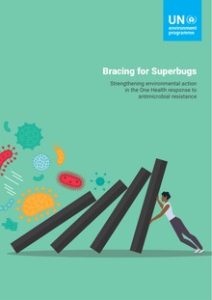
Elections in Digital Times: A Guide for Electoral Practitioners (UNESCO)
https://unesdoc.unesco.org/ark:/48223/pf0000382102
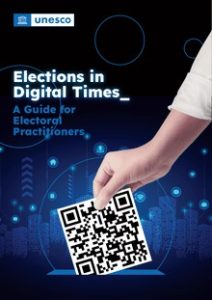
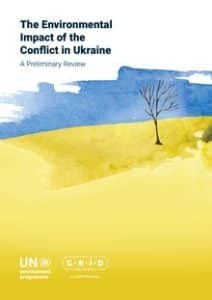
https://www.unep.org/resources/report/environmental-impact-conflict-ukraine-preliminary-review
UNEP is mandated to assist countries, upon request, with pollution mitigation and control in areas affected by armed conflict or terrorism. Responding to a request by the Government of Ukraine, this report was drafted as part of a preparatory process to assist Ukraine in recovery from the current conflict and to inform a comprehensive post-conflict assessment. During the conflict that began on 24 February 2022, Ukraine has experienced considerable environmental destruction. Extensive field assessment work will be required to establish the character, magnitude and significance of conflict-related environmental impacts and remediation requirements. The report presents a snapshot – but by no means a comprehensive picture – of the damage inflicted on Ukraine’s environment and the potential environmental and public health impacts, informing priorities for field-level verification work. Initial information shows that Ukraine, already burdened by a host of legacy environmental challenges, is now facing a compounded, multi-dimensional environmental crisis that has either exacerbated existing issues or added new ones. It is essential that the ongoing conflict ends now to ensure greater damage to the environment and to people is averted. The country and the region risk being burdened with a toxic legacy long after the conflict ends.
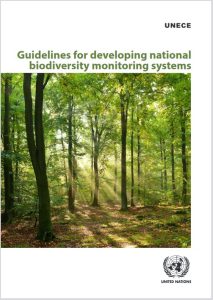
https://unece.org/info/Environment-Policy/Environmental-Monitoring-and-Assessment/pub/375255
Updated guidance published on 26 January 2023 by the United Nations Economic Commission for Europe (UNECE) will help governments to strengthen biodiversity monitoring as a basis for sharpened biodiversity protection policies across all sectors. The guidance is the first of its kind to build on the historic Kunming-Montreal Global Biodiversity Framework agreed at the 15th Conference of Parties to the Convention on Biological Diversity (COP-15) in December 2022. This comes at a crucial moment, with global biodiversity declining faster than at any time in human history. According to the 2022 UNECE report on progress towards the Sustainable Development Goals (SDGs), the pan-European region and North America needs to act urgently to reverse trends for biodiversity loss (target 15.5).
Land Matters: Can Better Governance and Management of Scarcity Prevent a Looming Crisis in the Middle East and North Africa? (World Bank)
https://openknowledge.worldbank.org/handle/10986/38384
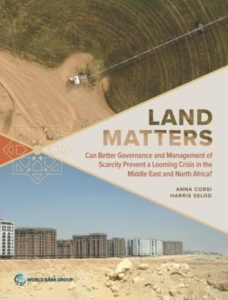
Levels and trends in child mortality: United Nations Inter-Agency Group for Child Mortality Estimation (UN IGME), Report 2022
https://data.unicef.org/resources/levels-and-trends-in-child-mortality/
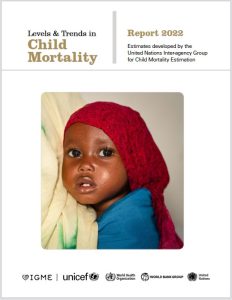
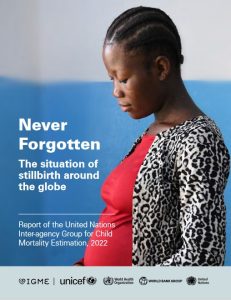
https://data.unicef.org/resources/never-forgotten-stillbirth-estimates-report/
Their names are Ashley, Everett and Shayen. They are among the 53 million babies that have been stillborn since 2000. Yet many of these children did not have to die. Many would be alive today had their mothers had access to proper care during pregnancy and labour. Instead of mourning them, their families would be celebrating birthdays, first steps and first words. Though these children’s lives have been cut tragically short, their parents will never forget them, nor the trauma of their death. Every day in 2021, over 5,000 babies were stillborn at 28 weeks or more of gestation. That’s a staggering 1.9 million babies stillborn in just one year. Two in five of these babies died during labour – what is known as intrapartum stillbirth. The estimates in this publication, the second report to address stillbirth by the United Nations Inter-agency Group for Child Mortality Estimation (UN IGME), are derived from the most up-to-date data from 195 countries and provide a picture of late gestation stillbirth, or deaths that occur at 28 weeks or more of gestation. They highlight the immense and continued annual burden of stillbirths and the women in the world at greatest risk of having a stillbirth. They also call attention to the fact that when pregnant women have access to quality care, most stillbirths can be prevented.
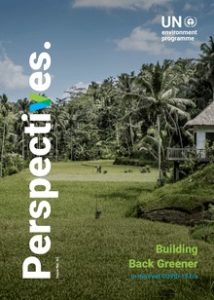
https://www.unep.org/resources/perspective-series/issue-no-42-building-back-greener-post-covid-19-era
“Executive Summary: COVID-19, the war in Ukraine, and the intensifying climate crisis have combined to create an unprecedented global emergency, with governments and institutions struggling to adapt to a rapidly destabilising situation. However, over the last two years a set of interlocking policy reforms has emerged with the potential to protect marginalised communities, restore the environment, and mitigate future disasters. These policies are designed to bring about an Inclusive Green Recovery, and this paper sets out a cohesive programme of complementary policy recommendations designed to enable a more inclusive and sustainable economy.”
Prospects for Children in the Polycrisis: A 2023 Global Outlook (UNICEF)
https://www.unicef.org/globalinsight/reports/prospects-children-polycrisis-2023-global-outlook
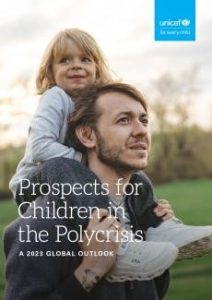
Ready to learn and thrive: school health and nutrition around the world
https://unesdoc.unesco.org/ark:/48223/pf0000384421
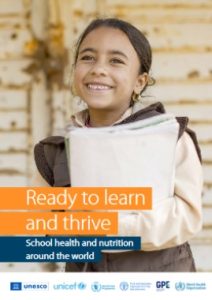
Reset earth: Apollo’s edition education portal (UNEP)
https://ozone.unep.org/apollo-edition

The Reset Earth Impact Simulator game puts the students in the hot seat. As decision makers, they get to decide on four possible policy directions, all of which have specific outcomes documented and visualised by the game. Based on their understanding of the ozone layer, its function and importance, the impacts of their decisions on the environment, society, economy, and political hegemony are recorded and scored.
Teachers can mix and match the lesson contents as they see fit and appropriate for their classes. Tools include short videos, class activities to stimulate debate and individual project tasks. The lessons are a flexible learning tool to incorporate ozone layer and environmental protection into existing curriculums.
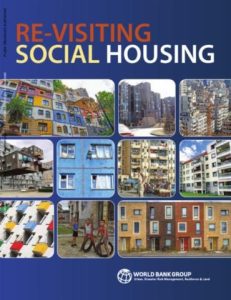
https://openknowledge.worldbank.org/handle/10986/38470
This study aims to re-visit the concept and practice of social housing, take stock of good practices and innovations, as well as the failures of social housing, and suggest ways in which the World Bank can help client countries/cities to make social housing work for the poor and low-income households, as well as for the functioning of the housing market overall. Specifically, the task at hand in preparing this report was to: Develop a working/operational definition of the loosely used ‘social housing’ terminology; Take stock of housing policies and programs since the “demise” of public housing; Undertake in-depth case studies of successes and innovations, lessons learned, and factors for success; and reflect upon how the World Bank could engage with the social housing sector. The research included an extensive literature review of primary and secondary sources on social housing and in-depth case studies.
River culture: life as a dance to the rhythm of the waters (UNESCO)
https://unesdoc.unesco.org/ark:/48223/pf0000382775
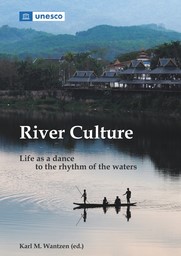
The section on “European Rivers” includes the following chapters: The Rhine–An Important Biocultural Axis for Europe; River restoration on catchment scale in the metropolitan region and post-mining landscape of the Emscher catchment, Germany; The Isar River: social pride as a driver of river restoration; The Danube: on the environmental history, present, and future of a great European river; The Seine, the river dedicated to Paris; The Loire: a cultural and environmental exception in Europe; Dordogne: the first UNESCO Biosphere Reserve covering an entire river basin; Nature-human-river relationships at the Ebro river and its delta (Spain); The waterways of Venice as an ‘extended museum’: new opportunities for cultural, social and environmental regeneration of a forgotten water heritage.
Scientific Assessment of Ozone Depletion 2022: Executive Summary
https://ozone.unep.org/system/files/documents/Scientific-Assessment-of-Ozone-Depletion-2022-Executive-Summary.pdf
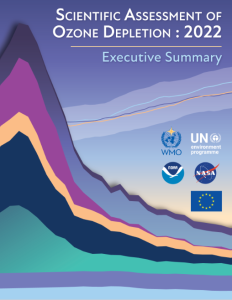
Transforming Education with Equitable Financing (UNICEF)
https://www.unicef.org/reports/transforming-education-equitable-financing
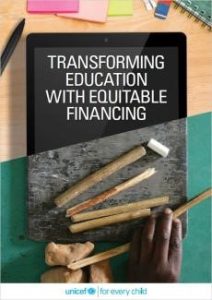
Urban Climate Action – The urban content of the NDCs: Global review 2022
https://unhabitat.org/urban-climate-action-the-urban-content-of-the-ndcs-global-review-2022
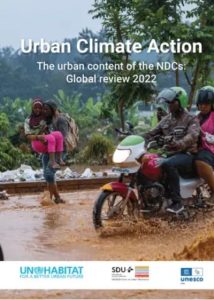
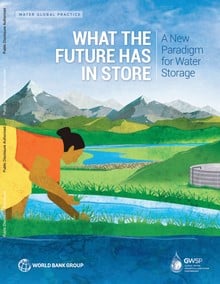
https://www.worldbank.org/en/topic/water/publication/what-the-future-has-in-store-a-new-paradigm-for-water-storage
The report is an urgent appeal to practitioners at every level, both public and private, and across sectors, to come together to champion integrated water storage solutions—natural, built, and hybrid—to meet a range of human, economic, and environmental needs for the twenty-first century. Closing storage gaps will require a spectrum of economic sectors and stakeholders to develop and drive multi‐sectoral solutions. The proposed integrated water storage planning framework is grounded in sustainable development and climate resilience, with the potential to pay dividends for people, economies, and environments for generations.
World Economic Situation and Prospects 2023
Report in English, Executive Summary in English, French & Spanish:
https://desapublications.un.org/publications/world-economic-situation-and-prospects-2023
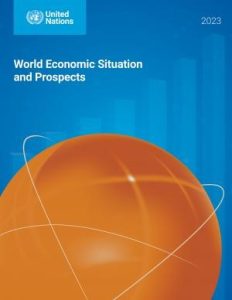
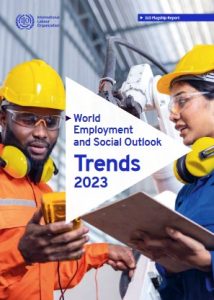
Report in English, Executive Summary in English, French & Spanish:
https://www.ilo.org/global/research/global-reports/weso/WCMS_865332/lang–en/index.htm
The current global economic slowdown is likely to force more workers to accept lower quality, poorly paid jobs which lack job security and social protection, so accentuating inequalities exacerbated by the COVID-19 crisis, according to a new International Labour Organization (ILO) report released on 16 January 2023. … The report also identifies a new, comprehensive measure of unmet need for employment – the global jobs gap. As well as those who are unemployed, this measure includes people who want employment but are not actively searching for a job, either because they are discouraged or because they have other obligations such as care responsibilities. The global jobs gap stood at 473 million in 2022, around 33 million above the level of 2019.
World Social Report 2023: Leaving No One Behind In An Ageing World (DESA)
http://www.un.org/development/desa/dspd/world-social-report/2023-2.html
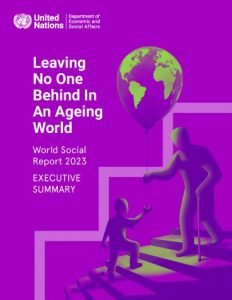
International Peace and Security
Concept note for the ministerial-level open debate of the Security Council on the theme “The promotion and strengthening of the rule of law in the maintenance of international peace and security: the rule of law among nations”
English, French & Spanish: https://undocs.org/S/2023/1
The Security Council held a ministerial-level open debate on 12 January 2023, on the theme “The rule of law among nations”, under the item entitled “The promotion and strengthening of the rule of law in the maintenance of international peace and security”. Japan, the Security Council President for January 2023, has prepared this concept note.
Concept note for the Security Council open debate on the theme “Peacebuilding and sustaining peace: investment in people to enhance resilience against complex challenges”
English, French & Spanish: https://undocs.org/S/2023/19
The Security Council held an open debate on 26 January 2023 on the theme “Investment in people to enhance resilience against complex challenges”, in connection with the item entitled “Peacebuilding and sustaining peace”. Japan, the Security Council President for January 2023, has prepared this concept note.
Journey to extremism in Africa: Pathways to recruitment and disengagement (UNDP)
https://www.undp.org/publications/journey-extremism-africa-pathways-recruitment-and-disengagement


https://peacekeepingresourcehub.un.org/
United Nations Departments of Peace Operations (DPO) is pleased to introduce the newly re-designed Peacekeeping Resource Hub. The website is designed to serve as the primary resource for Member States, Peacekeeping Training Institutes, Peacekeeping Operations and the UN’s partners on peacekeeping-related issues in all six official languages. It serves as a repository for all official DPO and DPPA training and guidance materials, and provides links to other related UN documents and resources. It also offers links to real-time news and updates in the United Nations peacekeeping world.
Human Rights
General comment No. 26 (2022) on Land and Economic, Social and Cultural Rights (E/C.12/GC/26)
English, French & Spanish: https://undocs.org/E/C.12/GC/26
The UN Committee on Economic, Social and Cultural Rights has issued a guidance note to clarify States’ obligations regarding the access to, use of and control over land, particularly about pressing issues affecting human rights such as eviction of land users, international investment, land-related conflicts, and climate change. “In many parts of the world, land is not only a resource for producing food, generating income, and developing housing; it also constitutes the basis for social, cultural and religious practices and the enjoyment of the right to take part in cultural life,” the Committee states in its guidance note, formally known as a general comment.
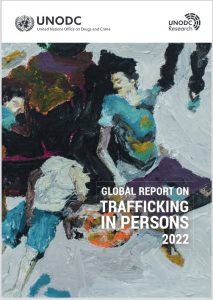
https://www.unodc.org/unodc/data-and-analysis/glotip.html
Fewer victims of trafficking in persons are being identified even as the COVID-19 pandemic and other crises are increasing vulnerabilities to exploitation, according to the latest Global Report on Trafficking in Persons launched on 24 January 2023 by the UN Office on Drugs and Crime (UNODC). The number of victims detected globally fell by 11 per cent in 2020 from the previous year, driven by fewer detections in low- and medium-income countries. The pandemic, in addition to reducing opportunities for traffickers to operate, may have weakened law enforcement capacities to detect victims. The seventh UNODC Global Report on Trafficking in Persons covers 141 countries and provides an overview of patterns and flows of trafficking in persons at global, regional and national levels, based on trafficking cases detected between 2017 and 2021. The findings are further informed by analysis of 800 court case summaries and accompanied by detailed suggestions to policy makers to help formulate effective responses.
Guidance on Racism and Xenophobia: How UNHCR can address and respond to situations of racism and xenophobia affecting persons under its mandate
English: https://data.unhcr.org/en/documents/details/98475
French: https://data.unhcr.org/en/documents/details/98477
Spanish: https://data.unhcr.org/en/documents/details/98483
The Human Rights Liaison Unit in the Protection Policy and Legal Advice (PPLA) section of UNHCR’s Division of International Protection has prepared this Guidance in response to a number of requests for advice from UNHCR operations on issues related to racism and xenophobia affecting persons of concern to UNHCR. The Guidance aims to: (1) provide a comprehensive framework for UNHCR’s interventions regarding racism, racial discrimination, xenophobia and related intolerance; (2) expand the ways UNHCR describes and presents issues related to racism, racial discrimination, xenophobia and related intolerance in order to include intersectional dimensions as well as structural, institutional and historical perspectives; (3) provide concrete examples of how UNHCR operations have addressed racism, racial discrimination, xenophobia and related intolerance; (4) highlight avenues to leverage the national, regional and UN human rights mechanisms and other platforms.
Illegal and Illegitimate: Examining the Myanmar military’s claim as the Government of Myanmar and the international response Conference room paper of the Special Rapporteur on the situation of human rights in Myanmar (A /HRC/52/CRP.2, 31 January 2023)
https://www.ohchr.org/sites/default/files/documents/countries/mm/2023-01-27/crp-sr-myanmar-2023-01-31.pdf
Myanmar’s junta—the State Administration Council (SAC)—is illegal and illegitimate, the UN human rights expert on Myanmar said 31 January 2023. He called for the international community to deny the SAC legitimacy, create a coalition of member states to enforce strong, coordinated sanctions against the SAC, and support the National Unity Government which has a stronger claim to legitimacy. On the eve of the second anniversary of the military coup in Myanmar which deposed the democratically elected National Unity Government, UN Special Rapporteur on the situation of Human Rights in Myanmar Tom Andrews, issued a new report that lays bare the junta’s flawed claims to be the legitimate government of Myanmar.
Stepping Forward: Parliaments in the Fight Against Hate Speech (UNDP Development Future Series, January 2023)
https://www.undp.org/publications/dfs-stepping-forward-parliaments-fight-against-hate-speech
This brief provides an overview of the background, drivers, enablers and the impact of hate speech and identifies strategies to counter it, with a focus on the role of parliaments as a positive force for change. Of particular relevance are the concrete actions parliaments can take to address and mitigate the prevalence and impact of hate speech on those who are most vulnerable in society, including women, minorities and other underrepresented groups. The objective of this brief is to provide meaningful and practical guidance for parliaments and parliamentarians, as well as those who programmatically support them, on steps they can take to reduce and counter hate speech while fostering peace, constructive dialogue and trust.
Humanitarian Affairs
Refugee and Migrant Health Toolkit (WHO)
https://www.who.int/tools/refugee-and-migrant-health-toolkit
The World Health Organization (WHO) developed a Refugee and migrant health toolkit, a web-based one-stop comprehensive platform of tools and resources, to support the global, regional, and country efforts in implementing health and migration-related activities. Migration and displacement often impact people’s physical and mental health and well-being, especially for those who were forced to flee their homes. It can leave particular impact on people displaced across borders or within their own country and those in an irregular situation or with vulnerabilities and specific health and protection needs. Refugee and migrants could face many factors such as their migratory status; national migration policies; and linguistic, cultural, economic, and social barriers that often hinder their access to health services. It is essential that countries have strong and inclusive health systems equipped with the necessary knowledge and tools to help decision-makers and health personnel meet the health needs and rights of these populations and advance the health and migration agenda.
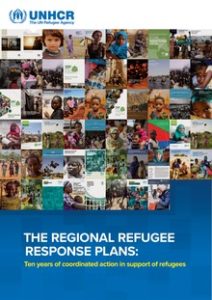
https://reporting.unhcr.org/document/4185
“A word from the Deputy High Commissioner: This year, we mark the tenth anniversary of the Refugee Response Plans (RRPs). In that time, more than 3,000 partners have been engaged in 12 regional refugee situations covering 50 countries worldwide to provide protection, humanitarian aid and solutions to those most in need. Through these efforts more than 83 million refugees and 65 million hosts, were identified for assistance. This would not have been possible without the continued engagement and collaboration of partners and support from our donors. Thanks to their support, the Plans have raised US$36 billion to support refugees and host communities. Introduced in 2012, the main aim of the Regional Refugee Response Plans is to ensure host governments, partners and donors have a clear overview of the response and budgetary needs. …”
Justice and International Law
International Criminal Court launched French and Spanish Versions of Case Law Database
https://legal-tools.org/cld
On 20 January 2023, the International Criminal Court (ICC) launched the French and Spanish versions of the ICC Case Law Database (CLD). The CLD is an easily searchable database of the Court’s jurisprudence providing free access to the entire case-law of the ICC in English, and to the available translations in French and Spanish.
The CLD is also part of the ICC’s Legal Tools Database (LTD), the leading information service on international criminal law developed by the Court as a digital public good. The LTD interface now functions in Chinese, English, French, Russian and Spanish. The LTD contains more than 179,000 court decisions from all international criminal jurisdictions since Nuremberg and other international courts; relevant treaties and UN resolutions, documents from the International Law Commission, UN human rights bodies and fact-finding mandates; relevant domestic statutes and court decisions; and other documents that may aid international criminal law work and research.
Nuclear, Chemical and Conventional Weapons Disarmament
UN Office for Disarmament Affairs – new and enhanced platforms
- UNODA Documents Library
The portal for documents of official disarmament meetings
https://library.unoda.org/ - UNODA Meetings Place
The portal for official and other disarmament meetings
https://meetings.unoda.org/
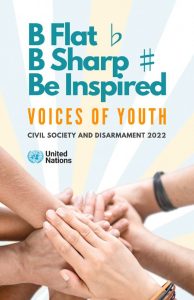
https://front.un-arm.org/wp-content/uploads/2023/01/Civil-Society-and-Disarmament-2022-rev.pdf
Launched in 2019, the #Youth4Disarmament (Y4D) initiative of the United Nations Office for Disarmament Affairs seeks to engage, educate and empower young people to facilitate their meaningful contribution to disarmament efforts. The “Spotlight Stories” section of the Y4D community website offers a space for young people to share – in their own voices and from their own perspectives – why the work of disarmament is critical to building peace and how they are helping push the field forward. This publication is a compilation of those stories, which reveal hope for a better future and show some of the diverse ways to pursue peace through disarmament in the twenty-first century.
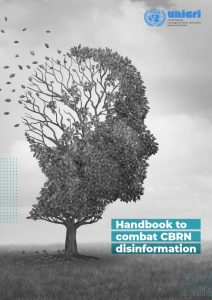
https://unicri.it/News/Hanbook-to-combat-disinformation
To produce this handbook, The UN Interregional Crime and Justice Research Institute (UNICRI) has monitored several social media platforms, paying specific attention to the role of violent non-state actors, namely: violent extremists; terrorist organizations (particularly those associated with ISIL, also known as Da’esh and Al-Qaida); and organized criminal groups. The Handbook aims at enhancing understanding of CBRN disinformation on social media while developing competencies to prevent and respond to disinformation with a specific focus on techniques for debunking false information. It has been designed for individuals or agencies working in CBRN risk mitigation at different levels (communication, decision-making, managerial, operational, technical, etc.) who have been or could potentially be exposed to and targeted by disinformation. The Handbook equips practitioners with the competencies to effectively analyse, understand and respond to CBRN disinformation in the media and on social media platforms.
Drug Control, Crime Prevention and Counter-terrorism
Media and the coverage of terrorism: manual for trainers and journalism educators (UNESCO)
English: https://unesdoc.unesco.org/ark:/48223/pf0000380356
French: https://unesdoc.unesco.org/ark:/48223/pf0000380608
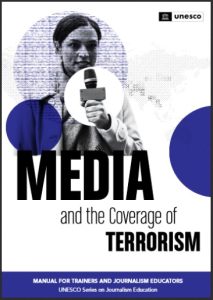
Newsletter Archive: https://unric.org/en/unric-info-point-library-newsletter-archive
